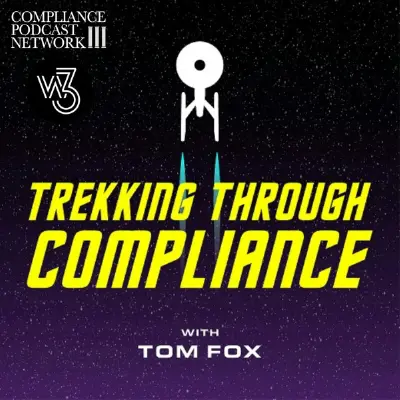June 03, 2025 · 11 min
In this episode of Trekking Through Compliance, we consider the episode Turnabout Intruder, which aired on June 3, 1969, Star Date 5298.5.
Story
The USS Enterprise meets the merchant vessel Antares to take charge of Charlie Evans, the sole survivor of a transport ship that crashed on Thasus. For fourteen years, seventeen-year-old Charlie grew up alone, stranded in the wreckage, learning to communicate with the ship's computer systems, which remained intact.
Despite his eagerness to please, Charlie becomes obnoxious since his lack of upbringing has left him with no knowledge of social norms or control of his emotions. He latches on to Captain Kirk as a father figure and develops an infatuation with Yeoman Janice Rand.
Realizing Charlie's powers are too great to be controlled, Kirk opts to divert from Alpha V to at least keep Charlie away from a civilized world where he would wreak havoc. Charlie discovers Kirk's plans and takes control of the Enterprise.
A Thasian ship approaches and restores the Enterprise and its crew to their proper forms. The Thasians reject Kirk's argument that Charlie belongs with his kind, with a final echoing wail of "I wanna stay!
Key Highlights
1. The Responsibilities of Power – Strength Without Structure🖖 Illustrated by: Charlie turning crew members into nothingness when they anger him. Charlie is gifted with tremendous abilities but lacks any ethical framework or boundaries. Think of an unmonitored executive with access to financial controls or an engineer with override access but no compliance training—a ticking time bomb.
2. Training and Supervision – It's Not Optional, It's Essential🖖 Illustrated by: Kirk's attempt to guide Charlie and his later regret at not recognizing the full scope of the risk. Charlie's guardianship was left to chance, with no proper onboarding and no safety protocols in place. In corporate compliance, onboarding isn't just about day one—it's about culture shaping. Organizations must ensure that individuals with a higher risk potential receive both guidance and oversight from the outset.
3. Unpredictable Behavior and Ethical Culture – From Red Flag to Alarm Bell🖖 Illustrated by: Charlie's mood swings and escalating aggression, which are repeatedly ignored until it's too late. The crew notices early signs—jealousy, possessiveness, emotional outbursts—but tolerates them. A strong compliance function identifies behavioral red flags before they escalate into corporate crises.
4. Communication and Escalation Protocols – Say Something, Do Something🖖 Illustrated by: Janice Rand's discomfort and unease around Charlie, which she initially tries to manage on her own. Rand's growing fear highlights how difficult it can be to speak up—especially when someone powerful appears to be protected. Companies must establish genuine channels for complaints, empower employees to utilize them and respond promptly and transparently.
5. Crisis Management – Too Late is Still Too Late🖖 Illustrated by: The crew's loss of control over the Enterprise, forcing alien intervention to remove Charlie. The crew fails to contain the situation internally. It takes external, godlike beings to restore order—a cautionary tale for compliance leaders. Crisis planning and early intervention are crucial in protecting the organization before outside authorities are required to intervene.
Resources:
Excruciatingly Detailed Plot Summary by Eric W. Weisstein
MissionLogPodcast.com
Memory Alpha
Learn more about your ad choices. Visit megaphone.fm/adchoices
